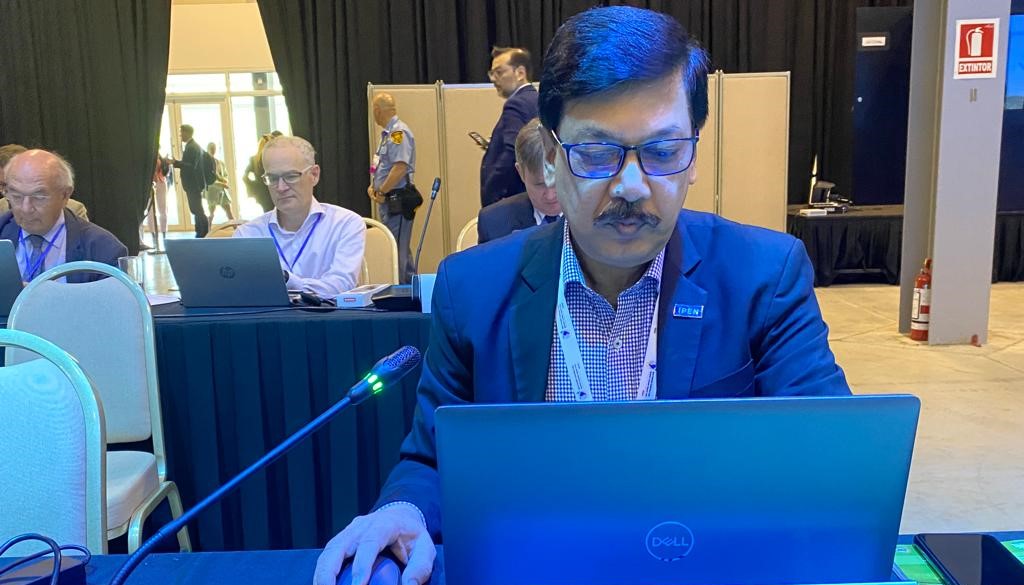ESDO Statement at 1st session of the Intergovernmental Negotiating Committee meeting

The long-awaited 1st session of the Intergovernmental Negotiating Committee to develop an international legally binding instrument on plastic pollution, including in the marine environment (INC-1), has started on November 28, 2022, in Punta del Este, Uruguay, and will be held until December 2, 2022.
With more than 2300 delegates registered, more than 160 nations were represented on the first day of the meeting. Delegates met in plenary throughout the first day to hear opening remarks, discuss logistical difficulties, and start conversations around ILBI components.
On behalf of the Environment and Social Development Organization-ESDO and a participating organization of IPEN, Dr. Shahriar Hossain, Secretary General of ESDO, and Siddika Sultana, Executive Director of ESDO, are currently in Uruguay attending the meeting. Regarding the issue, ESDO has submitted a statement to the honorable Chair of the meeting which has been presented by Dr. Shahriar Hossain.
The statement states ‘A guideline on proper management way of plastic waste also needs to be established to secure our oceans. Due to improper management and lack of reasonable consideration of people, plastics go down the drain, and eventually, it goes into our oceans which is the reason for the transboundary movement of plastic wastes via waterways. Plastics from things like wet wipes, microbeads in cosmetic products, and all manner of tiny plastic fragments escape to the ocean this way. This can impose a serious threat to our ocean resources.’
It also states and quotes ‘The management of current stockpiles of plastics must not release toxic chemicals, or plastic litter, or contribute to climate change. Non-circular plastics (those containing toxic additives) should be identified, segregated, and safely disposed of. The export of plastic waste for disposal purposes should be prohibited and effective national collection and recycling systems should be funded. Burning plastic waste or associated derived fuels for energy in cement kilns, incinerators, or other combustion technologies is not circular, renewable, or sustainable and should be prohibited.’


